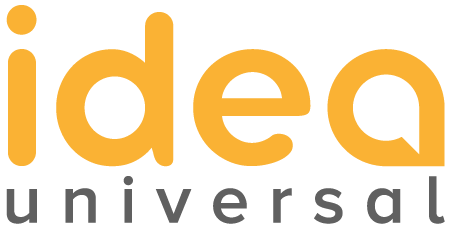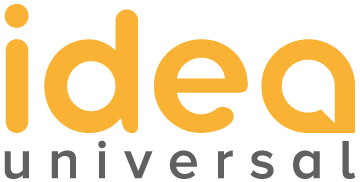Women travel an average of 6 kilometers a day in Africa. The fate of Kumba, who had no choice but to trek everyday to bring water to her home, changed with the fountain in front of her house. Kumba is very happy and grateful now. She has much more time to spend with her children and family.
Clean Water
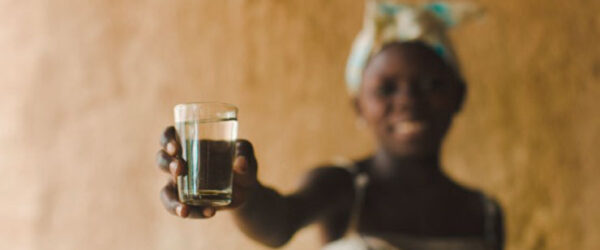
Water is vital for every living being. However, 800 million people in the world can’t reach clean water. This is 10 times the size of Turkey’s population. The vast majority of this population lives in rural areas within Asia and Africa, and often have to walk for hours. Hours for water that they receive from sources such as streams and lakes, which are not even clean. The water transport journey, mostly made by women and children barefoot, contains many dangers. The attack of wild animals, the risk of pregnant women losing their babies due to the external stress put on their bodies from the physically demanding journey, and being potentially preyed upon by sexual predators, are just a few of them. Children cannot set up a future for themselves since they have to spend their time on their water duties and not on attending school. Furthermore, epidemics are worsening the hardships of these already poverty-stricken people. Due to the lack of water, families cannot cultivate and produce enough food for themselves. They cannot save themselves, creating an endless cycle of hunger and poverty.
Dirty water takes more lives combined than all wars and violence in the world. 43% of these casualties are children under the age of 5. However, when we place a water project in a village under these situations, everything starts to transform suddenly. People who now have fresh water 12 hours a day from the fountains in front of their houses and schools have a new start on life. It regains health, produces agriculture, and girls do not have to give up their education for the sake of retrieving water.
In short, water transforms everything.
Solving the Water Crisis
The solution of the water problem differs from village to village. With years of experience and the expertise of our local employees, we determine the most suitable method for the village where we will start working. Among these methods, there are different solutions such as drilling wells, establishment of rainwater collection systems, establishment of seawater treatment systems, and rehabilitation of the existing water wells.
Thanks to your support, we implement the most appropriate solution we have determined with the participation of local governments and the local people.
After securing the water projects, next we work towards hygiene education. Reaching clean water, the public learns the methods of protection from infectious diseases through hygiene education.
In some villages, thanks to the sensors and satellite connection we place on the water pump, we can instantly access and interfere with water use and malfunction information. (We are still in the development phase of this technology.)
Lastly, The Water Committee, established in every village with democratic participation, takes responsibility for the continuity of the water projects. Our aim as an association is to have every voice heard and count when it comes to bettering the living conditions of all involved.
For more information, check out“Smart Village” Projects.
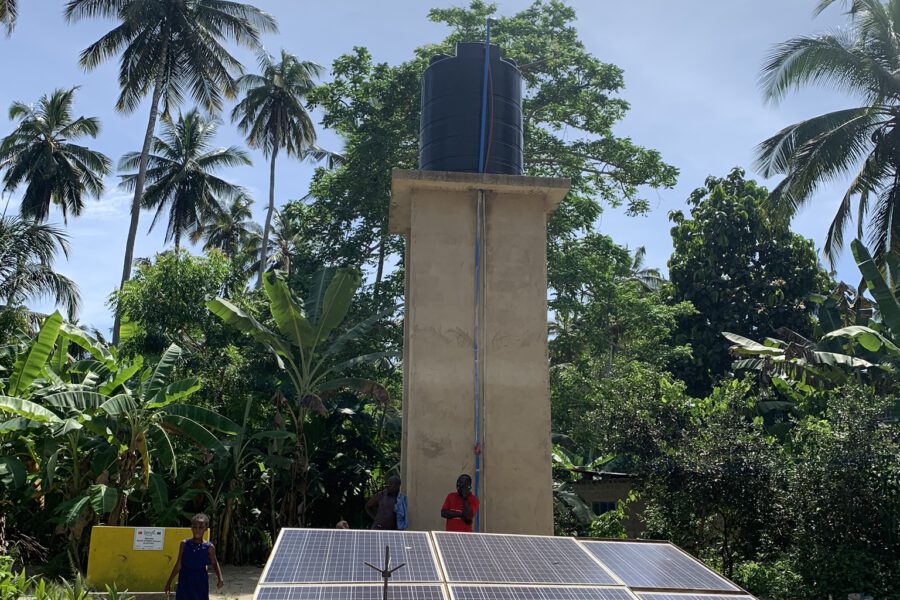
Solar Powered Community Water Projects
The most important step of IDEA Universal’s United Nations awarded “Smart Village” project is the solar water distribution systems. Since there is no electricity in the villages where we work, we have to produce electricity with solar panels based on the reliance of natural resources. The water source reached by drilling is turned into a closed system. Pumps placed in the system are then powered by electricity produced by solar panels. This way, the water is distributed to the fountains in many parts of the village.
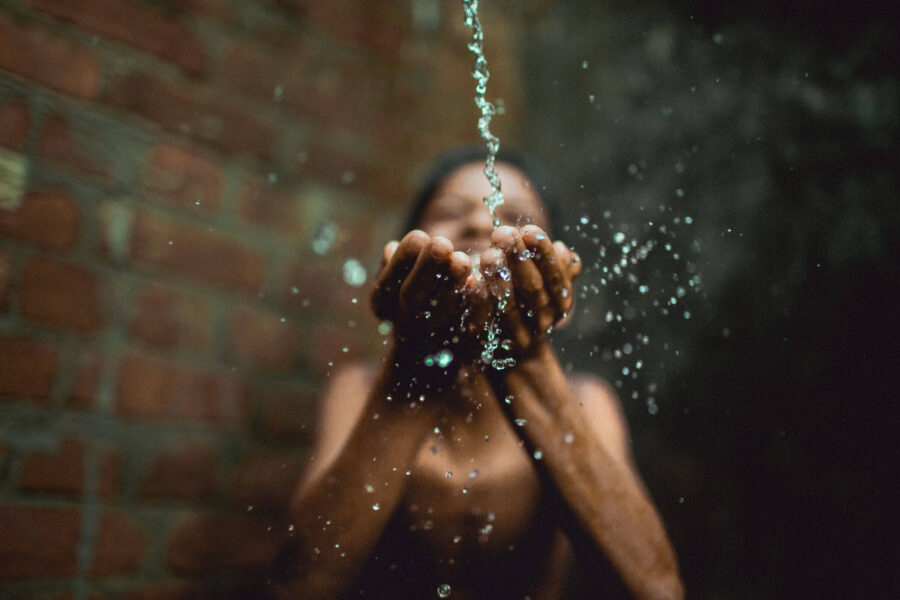
Water Well Rehabilitations
60% of water wells in Africa become idle within one year after opening. Noting this statistic, we are making sustainable water distribution projects that never remain idle, alongwith giving life to the wells that have been built years ago and have been dried, pumped, and contaminated. With watchful observation, water wells are checked to make sure they are up to health code. We make the necessary improvements (deepening, pump replacement, disinfection, reservoir construction, etc.) all in accordance with the World Health Organization standards. The most important thing, we provide repair/maintenance training to two people from every village so that those wells will never be idle again.
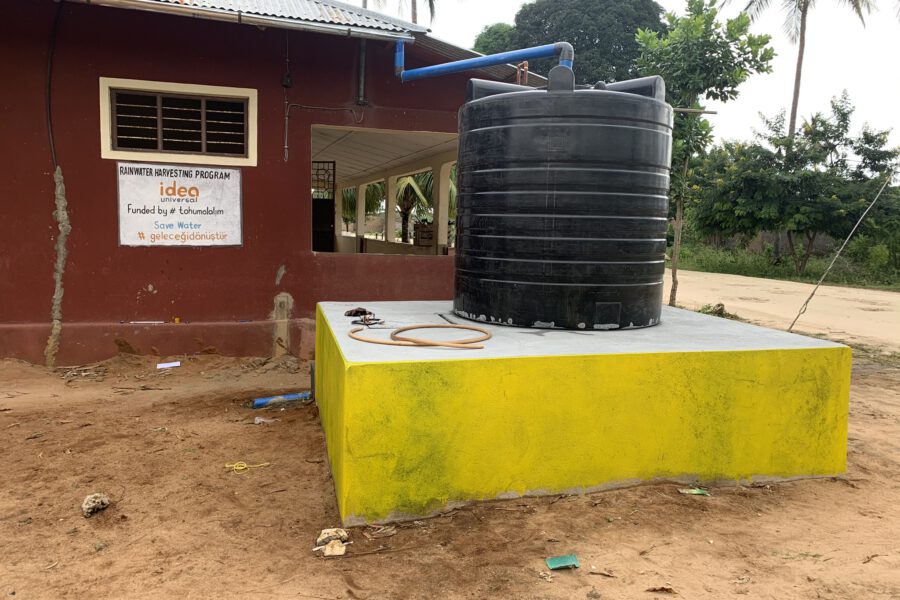
Rainwater Harvesting Projects
Being aware of the limitations of groundwater, we have expanded our search for clean water through different means. Another way we have decided to gather water is by harvesting rainwater. We are in favor of using this ancient water gathering system for hygienic purposes and irrigation. The resources to be obtained by recycling natural resources will ensure the healthy continuous functioning of the World cycle. With this view, we ensure the recycling of water with our rainwater collection project, which we started primarily in schools. Children learn how to use this water for their hygienic needs. In addition, this water is used in the irrigation of the agricultural garden we made in the schools.
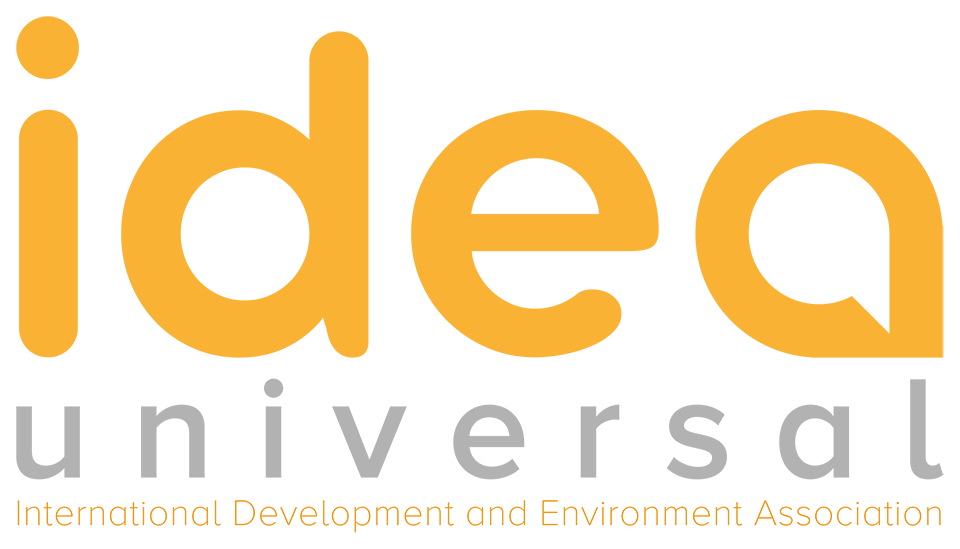
IDEA Universal (International Association for Development and Environment) is a transparent and independent non-profit organization founded in 2017. Continuously creating developmental programs in Turkey, Africa and Asia. Relentlessly working nonstop to transform the lives of hundreds of thousands of people and counting. File number: #34-237-193
GET INSPIRED
Transformation stories get to your email every month.
CONTACT
©2021 IDEA Universal (International Development and Environment Association) | Privacy Policy

